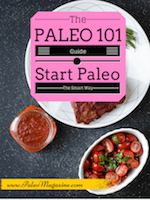Low-Fat Dairy is the Worst, Literally
Over the years, there has been a large debate about dairy – whether it should be considered healthy (or Paleo), or whether it’s no better than grains and processed sugars.
Based on what we know today, dairy is 100% Paleo, so long as (a) it’s either raw or fermented, and (b) so long as you tolerate it well. In terms of tolerating dairy well, this usually means that you’ve eliminated all dairy for at least 30-60 days and then re-introduced it to see how your body reacts.
Raw and fermented dairy is Paleo because it’s very high in nutrients and very low in toxins (the primary way that we determine whether any food is Paleo).
 This following paper did not examine raw dairy, but it’s nonetheless interesting to show us how badly mainstream nutrition has gotten it wrong in some cases:
This following paper did not examine raw dairy, but it’s nonetheless interesting to show us how badly mainstream nutrition has gotten it wrong in some cases:
In this study, the researchers measured inflammation based on whether a participant had eaten low-fat dairy, high-fat dairy, or fermented dairy.
And what they found is really not all that surprising.
Fermented Dairy is Better than High Fat Dairy is Better than Low Fat Dairy
Participants who ate low-fat dairy were significantly more inflamed than participants who ate fermented dairy. Participants who ate high-fat non-fermented dairy fell somewhere in between.
(I’d love to have seen the researchers add in a fourth group of people who ate only raw dairy…)
In other words, although interest groups and the government have been trying to convince us to drink skim milk for the last 30 years, it’s pretty clear that skim milk (or any low-fat dairy) is significantly more inflammatory.
Synopsis
Don’t drink skim milk, for a start. And if you do eat dairy, make sure that it’s raw or fermented.
Oh, and listen to health recommendations (including this one) with a grain of salt.
Images: Copyright © Gina Sanders from Fotolia

